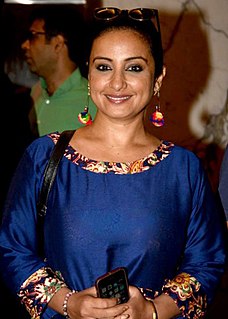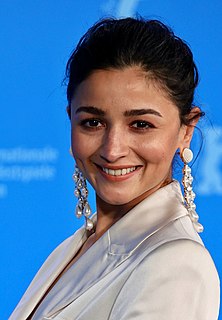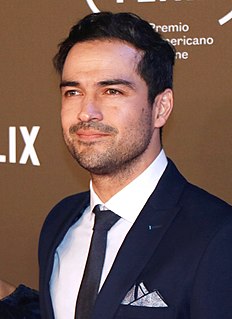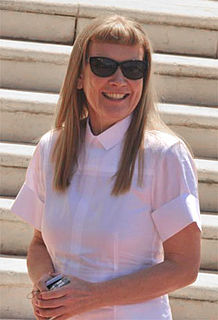A Quote by Octavia Spencer
We as women have a voice and we are decision makers in what film to see. We always support our boyfriends and husbands by going to see the male dominated films, but we don't compel them to see films with female casts.
Related Quotes
I think a lot of women who are celebrities and who are very beautiful have terrible problems with their men being very controlling. Women allow themselves to be dominated and controlled by men in all sorts of other ways that are very complicated, you know? I don't really see a lot of women engaging in discussions about the struggles and power relations with men and their lives, like their bosses, boyfriends, husbands, coworkers. I don't see that happening very often, whereas I see a lot of misogyny on the internet. I see a lot of hatred towards women and a lot of fear of women.
The positive thing is that today we can realize that a Mexican film it is positioned in the top 5 of the box office during more than one month and that Mexicans are taking into consideration that Mexican films can be enjoyed with the family, instead of going to see Transformers and that our films looks like something that are necessary to support.
To see talented people in roles that others might not see them in, to see how they might fit in the puzzle of the cast, has always been something that I've been good at. I think that if you look at the successes of my films and start to peel them back, there's usually a really smart casting decision that has gone into that success.
It's a fact, the majority of films in Hollywood are from the male perspective. And the female characters, very rarely do they get to speak to another female character in a movie, and when they do it's usually about a guy, not anything else. So they're very male-centric, Hollywood films, in general. So I think it's incredible that Ned Benson, when I said I'd love to know where she goes, says okay, I'm going to write another film from the female perspective.
When I started acting in the film industry when I was 16 years old, in 1980, I was going to all the revival theaters in Los Angeles. They were playing mostly films from the '60s and '70s, some from the early '20s and '30s, before that Hays commission. Those films did question things a lot, and there definitely was a switch in 1934. You can see very distinctly in 1934, it's harder to understand what the real culture was. Films made before 1934, you can really kind of see the racism, sexism, drug use, etc. that was going on at that time. And then it was all stopped.
John Cassavetes' films have really altered the way I see film and acting and storytelling and emotion and love, so I see acting as this incredible revealing of human nature and this means of telling our story, sharing our voice with the world. That's what acting is for me. It allows for people to experience things through the character, through the story.




































